Welcome to Tesla Motors Club
Discuss Tesla's Model S, Model 3, Model X, Model Y, Cybertruck, Roadster and More.
Register
Install the app
How to install the app on iOS
You can install our site as a web app on your iOS device by utilizing the Add to Home Screen feature in Safari. Please see this thread for more details on this.
Note: This feature may not be available in some browsers.
-
Want to remove ads? Register an account and login to see fewer ads, and become a Supporting Member to remove almost all ads.
You are using an out of date browser. It may not display this or other websites correctly.
You should upgrade or use an alternative browser.
You should upgrade or use an alternative browser.
Climate Change / Global Warming Discussion
- Thread starter Raffy.Roma
- Start date
-
- Tags
- Energy Environment Policy
Watched this last night. Incredibly compelling.
Interesting video. To this concern I wish to report also this video where Sir David Attenborough, Dr. James Hansen and other Climate Scientists talk about the Climate Change issue.
I invite all TMC Members to watch the reported video.
mspohr
Well-Known Member
Reinforces Attenborough point about biodiversity lossWatched this last night. Incredibly compelling.
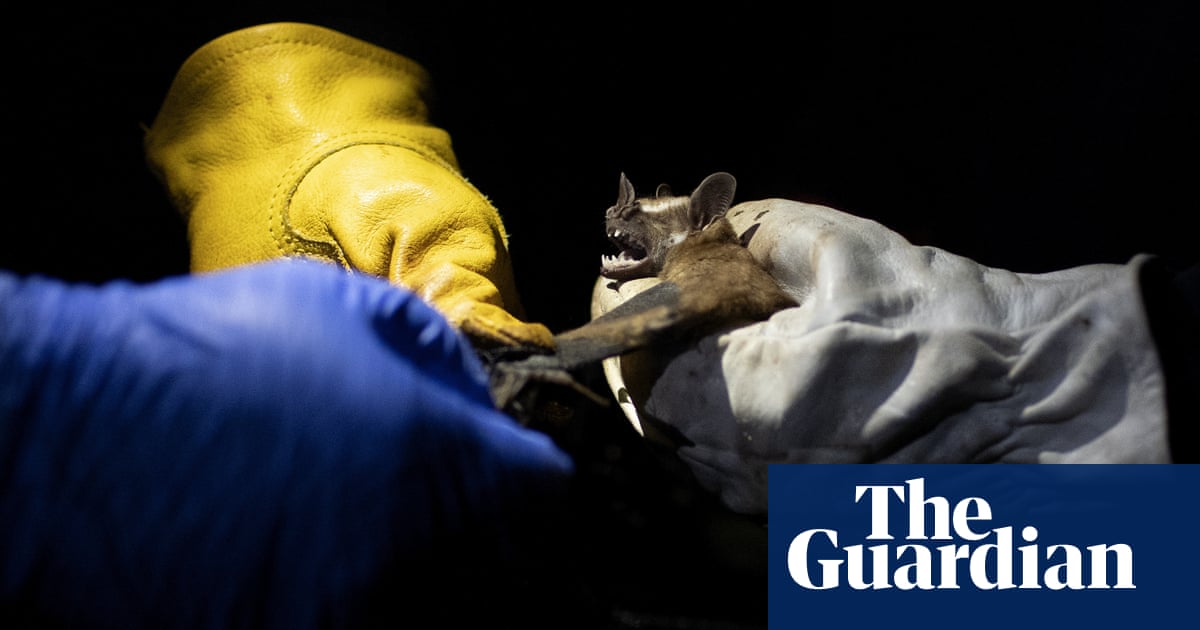
Biodiversity loss is biggest driver of infectious disease outbreaks, says study
Researchers say reducing emissions and biodiversity loss and preventing invasive species could control disease
Biodiversity loss is the biggest environmental driver of infectious disease outbreaks, making them more dangerous and widespread, a study has found. New infectious diseases are on the rise and they often originate in wildlife. In meta-analysis published in the journal Nature, researchers found that of all the “global change drivers” that are destroying ecosystems, loss of species was the greatest in increasing the risk of outbreaks. Biodiversity loss was followed by climate change and introduction of non-native species
Researchers say that reducing emissions, reducing biodiversity loss and preventing invasive species could all help to reduce the burden of disease. “We hope that our analyses will facilitate disease control, mitigation and surveillance efforts globally,” researchers wrote in the paper.
Former Vice President Al Gore is complaining that a new gas plant will be built in Tennessee
US's largest public utility ignores warnings in moving forward with new natural gas plant
The nation’s largest public utility is moving ahead with a plan for a new natural gas plant in Tennessee despite warnings that its environmental review of the project doesn’t comply with federal law.
NASHVILLE, Tenn. (AP) — The nation’s largest public utility is moving ahead with a plan for a new natural gas plant in Tennessee despite warnings that its environmental review of the project doesn’t comply with federal law. The Tennessee Valley Authority announced in April that it would replace the aging coal-burning Kingston Fossil Plant with gas amid growing calls for the agency’s new board of directors to invest in renewables.
The board, with six of nine members appointed by President Biden, is expected to meet on Thursday in Nashville, a day after a planned protest by a coalition of environmental groups demanding the utility stop investing in fossil fuels.
Decommissioning the Kingston plant, the site of a massive 2008 coal ash spill, is part of TVA’s overall plan to reduce its reliance on coal. In analyzing alternatives to replace the plant, the utility considered either a new 1,500-megawatt gas plant or 1,500 megawatts of solar combined with 2,200 megawatts of battery storage. TVA concluded that a 2027 deadline for retiring the current plant does not give it enough time to develop the renewables alternative.
The Environmental Protection Agency asked the utility in a March 25 letter to redo several aspects of its analysis, citing “numerous” concerns with the plan to install new gas turbines. Among other things, the EPA accused the utility of defining the Kingston project so narrowly that only its predetermined choice of a new gas plant would meet the parameters, making the evaluation process a “foreordained formality.” EPA said the utility did not adequately explain the need for the 2027 closure or look at possible alternatives.
Bottom line: luckily we have such a good person as Al Gore fighting close to us.
Last edited:
I've watched Fallout. I believe we will have a much worse demise than what climate change could ever do to the planet.
Don't understand can you please better explain this?I've watched Fallout. I believe we will have a much worse demise than what climate change could ever do to the planet.
To this concern I wish to remind this:
Former Vice President Al Gore is complaining that a new gas plant will be built in Tennessee
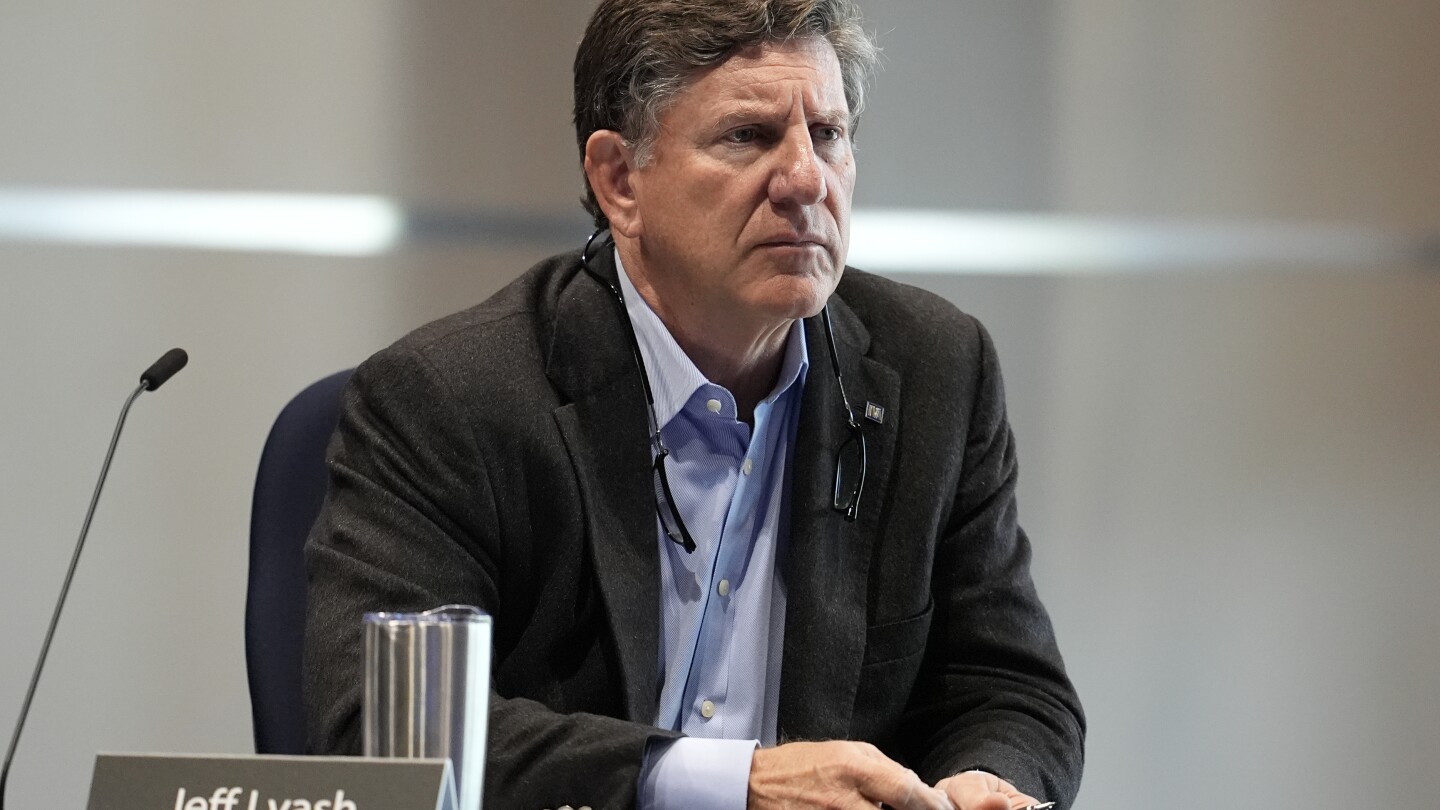
US's largest public utility ignores warnings in moving forward with new natural gas plant
The nation’s largest public utility is moving ahead with a plan for a new natural gas plant in Tennessee despite warnings that its environmental review of the project doesn’t comply with federal law.apnews.com
NASHVILLE, Tenn. (AP) — The nation’s largest public utility is moving ahead with a plan for a new natural gas plant in Tennessee despite warnings that its environmental review of the project doesn’t comply with federal law. The Tennessee Valley Authority announced in April that it would replace the aging coal-burning Kingston Fossil Plant with gas amid growing calls for the agency’s new board of directors to invest in renewables.
The board, with six of nine members appointed by President Biden, is expected to meet on Thursday in Nashville, a day after a planned protest by a coalition of environmental groups demanding the utility stop investing in fossil fuels.
Decommissioning the Kingston plant, the site of a massive 2008 coal ash spill, is part of TVA’s overall plan to reduce its reliance on coal. In analyzing alternatives to replace the plant, the utility considered either a new 1,500-megawatt gas plant or 1,500 megawatts of solar combined with 2,200 megawatts of battery storage. TVA concluded that a 2027 deadline for retiring the current plant does not give it enough time to develop the renewables alternative.
The Environmental Protection Agency asked the utility in a March 25 letter to redo several aspects of its analysis, citing “numerous” concerns with the plan to install new gas turbines. Among other things, the EPA accused the utility of defining the Kingston project so narrowly that only its predetermined choice of a new gas plant would meet the parameters, making the evaluation process a “foreordained formality.” EPA said the utility did not adequately explain the need for the 2027 closure or look at possible alternatives.
Bottom line: luckily we have such a good person as Al Gore fighting close to us.
The 2007 Nobel Peace Prize was shared, in two equal parts, between the Intergovernmental Panel on Climate Change (IPCC) (founded in 1988) and United States former vice president, Al Gore for their efforts to increase public knowledge about man-made climate change.
"Please make no mistake. Climate Change is the biggest threat to Security that modern humans have ever faced."
Sir David Attenborough
I invite all TMC Members to watch the reported video by Sir David Attenborough.
Sorry but I have to report this comment by Prof. Bill McGuir about the fact that we had a whole year of record breaking Ocean Temperatures.
TRULY TERRIFYNG
This post is WORRISOME. PLEASE don't look it up.
Wish to report 2 more comments about the fact that we had a whole year of record breaking Ocean Temperatures adding to the quoted comment by Prof. Bill McGuir.
"The fact we can't simulate these step-change increases and understand why it's happening is TERRIFYING."
Prof. Hayley Fowler
"The impact of warming the ocean could lead to NEW CLASSES OF HEATWAVES we've never seen before."
Prof. Valerio Lucarini

The Guardian view on the climate emergency: we cannot afford to despair | Editorial
Editorial: Top experts believe global temperatures will rise by at least 2.5C above pre-industrial levels by 2100. That frightening prediction must spur us to action
First the good news. We understand the problem: almost two-thirds of people worldwide believe the climate crisis is an emergency. We know what needs to be done, and should be confident that we will be able to achieve it, thanks to the rapid advance of renewable technologies. Collectively, we can also muster the money to do it.
The scale and speed of global heating make it hard to hang on to these facts. But it is also why we must focus on them rather than throwing up our hands. New research by the Guardian has found that hundreds of the world’s top climate scientists believe global temperatures will rise by at least 2.5C above pre-industrial levels by the century’s end, far above the internationally agreed limit. Only 6% of those surveyed, all from the Intergovernmental Panel on Climate Change, thought that the 1.5C target could be met.
We are already seeing soaring temperatures. The European Union’s climate monitoring service says that every month since last June has broken temperature records. And we are already living with – and dying from – the early consequences: deadly floods, wildfires, droughts, heatwaves and an increased risk of new diseases. These will intensify in coming years, spurring social conflicts and displacing huge numbers of people. They will punish poorer nations above all – experts warn of a “semi-dystopian future” for the global south – which helps to explain why richer nations have been slow to act. But they will not be contained there.
This picture of the future can feel overwhelming and unfixable, encouraging people to tune out or accept the worst. For many of the scientists surveyed by the Guardian, those feelings are magnified. Having invested so much in understanding, measuring and informing people about the problem, they find it incomprehensible that so little has been done to tackle the causes and prepare for the consequences. They feel hopeless and infuriated when faced by the failure of governments to act, and the determination of vested corporate interests to block change. Tweaking personal behaviour is not sufficient: systemic change is required.
It is true that what citizens support in theory and what they actually vote for do not always align. Tackling global heating will be cheaper than trying to live with it, but the costs are upfront and the rewards long term – certainly longer than electoral cycles. But politicians have mostly failed to make the case for change, and some experts believe that they often lag behind voters. If you want to make a difference, they say, back leaders who prioritise the climate crisis. A year with so many major elections around the globe offers a critical opportunity.
Scientists also noted that young people care more about the crisis and appear more willing to make lifestyle changes to address it. And in moments of despair, said one expert, Henri Waisman, two things help: “Remembering how much progress has happened since I started to work on the topic in 2005 and that every tenth of a degree matters a lot – this means it is still useful to continue the fight.”
It is not only useful; it is essential. Individual actions can seem futile given the magnitude of the task. But they can also build collective awareness, a sense that change is possible and momentum for wider systemic progress. Just as climate tipping points exist, so do social tipping points. It is imperative to hit the latter as fast as we possibly can.

‘I am starting to panic about my child’s future’: climate scientists wary of starting families
A fifth of female climate scientists who responded to Guardian survey said they had opted to have no or fewer children
"I had the hormonal urges" said Prof Camille Parmesan, a leading climate scientist based in France. “Oh my gosh, it was very strong. But it was: ‘Do I really want to bring a child into this world that we’re creating?’ Even 30 years ago, it was very clear the world was going to hell in a handbasket. I’m 62 now and I’m actually really glad I did not have children.”
Parmesan is not alone. An exclusive Guardian survey has found that almost a fifth of the female climate experts who responded have chosen to have no children, or fewer children, due to the environmental crises afflicting the world.
Such decisions were extremely difficult, they said. Dr Shobha Maharaj, an expert on the effects of the climate crisis from Trinidad and Tobago, has chosen to have only one child, a son who is now six years old. “Choosing to have a child was and continues to be a struggle,” she said.
Maharaj said fear of what her child’s future would hold, as well as adding another human to the planet, were part of the struggle: “When you grow up on a small island, it becomes part of you. Small islands are already being very adversely impacted, so there is this constant sense of impending loss and I just didn’t want to have to transfer that to my child.”
“However, my husband is the most family-oriented person I know,” Maharaj said. “So this was a compromise: one child, no more. Who knows, maybe my son will grow up to be someone who can help find a solution?”
The Guardian approached every contactable lead author or review editor of all reports from the Intergovernmental Panel on Climate Change since 2018. The IPCC’s reports are the gold standard of climate knowledge. Of the 843 contacted, 360 replied to the question on life decisions, a high response rate.
Ninety-seven female scientists responded, with 17, including women from Brazil, Chile, Germany, India and Kenya, saying they had chosen to have fewer children. All but 1% of the scientists surveyed were over 40 years old and two-thirds were over 50, reflecting the senior positions they had reached in their professions. A quarter of the respondents were women, the same proportion as the overall authorship of the IPCC reports.
The findings were in response to a question about major personal decisions taken in response to the climate crisis by scientists who know the most about it, and who expect global temperatures to soar past international targets in coming years. 7% of the male scientists who responded said they had had either no children or fewer than they would otherwise have had.
Most of the female scientists interviewed had made their decisions about children in past decades, when they were younger and the grave danger of global heating was less apparent. They said they had not wanted to add to the global human population that is exacting a heavy environmental toll on the planet, and some also expressed fears about the climate chaos through which a child might now have to live.
Madeindex.org
Member
Very interesting to read, thank you
‘I am starting to panic about my child’s future’: climate scientists wary of starting families
A fifth of female climate scientists who responded to Guardian survey said they had opted to have no or fewer childrenwww.theguardian.com
"I had the hormonal urges" said Prof Camille Parmesan, a leading climate scientist based in France. “Oh my gosh, it was very strong. But it was: ‘Do I really want to bring a child into this world that we’re creating?’ Even 30 years ago, it was very clear the world was going to hell in a handbasket. I’m 62 now and I’m actually really glad I did not have children.”
Parmesan is not alone. An exclusive Guardian survey has found that almost a fifth of the female climate experts who responded have chosen to have no children, or fewer children, due to the environmental crises afflicting the world.
Such decisions were extremely difficult, they said. Dr Shobha Maharaj, an expert on the effects of the climate crisis from Trinidad and Tobago, has chosen to have only one child, a son who is now six years old. “Choosing to have a child was and continues to be a struggle,” she said.
Maharaj said fear of what her child’s future would hold, as well as adding another human to the planet, were part of the struggle: “When you grow up on a small island, it becomes part of you. Small islands are already being very adversely impacted, so there is this constant sense of impending loss and I just didn’t want to have to transfer that to my child.”
“However, my husband is the most family-oriented person I know,” Maharaj said. “So this was a compromise: one child, no more. Who knows, maybe my son will grow up to be someone who can help find a solution?”
The Guardian approached every contactable lead author or review editor of all reports from the Intergovernmental Panel on Climate Change since 2018. The IPCC’s reports are the gold standard of climate knowledge. Of the 843 contacted, 360 replied to the question on life decisions, a high response rate.
Ninety-seven female scientists responded, with 17, including women from Brazil, Chile, Germany, India and Kenya, saying they had chosen to have fewer children. All but 1% of the scientists surveyed were over 40 years old and two-thirds were over 50, reflecting the senior positions they had reached in their professions. A quarter of the respondents were women, the same proportion as the overall authorship of the IPCC reports.
The findings were in response to a question about major personal decisions taken in response to the climate crisis by scientists who know the most about it, and who expect global temperatures to soar past international targets in coming years. 7% of the male scientists who responded said they had had either no children or fewer than they would otherwise have had.
Most of the female scientists interviewed had made their decisions about children in past decades, when they were younger and the grave danger of global heating was less apparent. They said they had not wanted to add to the global human population that is exacting a heavy environmental toll on the planet, and some also expressed fears about the climate chaos through which a child might now have to live.
Found this interesting article about the consequences of a whole year of record breaking Ocean Temperatures.
A whole year of record breaking Ocean Temperatures.
As you can see in the reported graph the Ocean Temperatures have been at record levels each day since 4 May 2023.
This warmth has significant effects on ocean ecosystems. A large fraction of the world’s human population rely on protein from the ocean to live. Disruption to life in the ocean does affect us all.
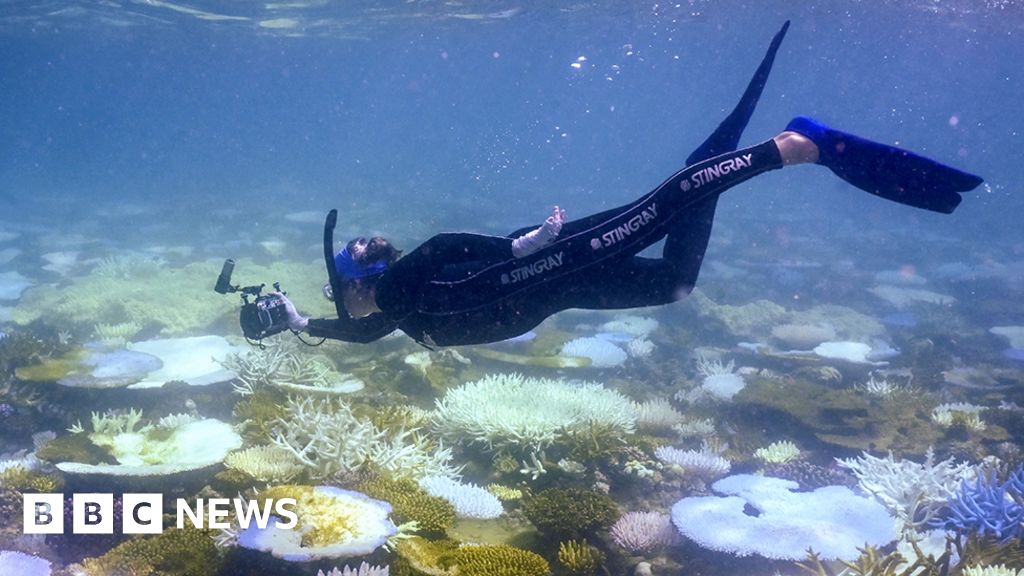
Climate change: World's oceans suffer from record-breaking year of heat
Every single day of the past 12 months has seen a new global sea temperature high for the time of year.www.bbc.com
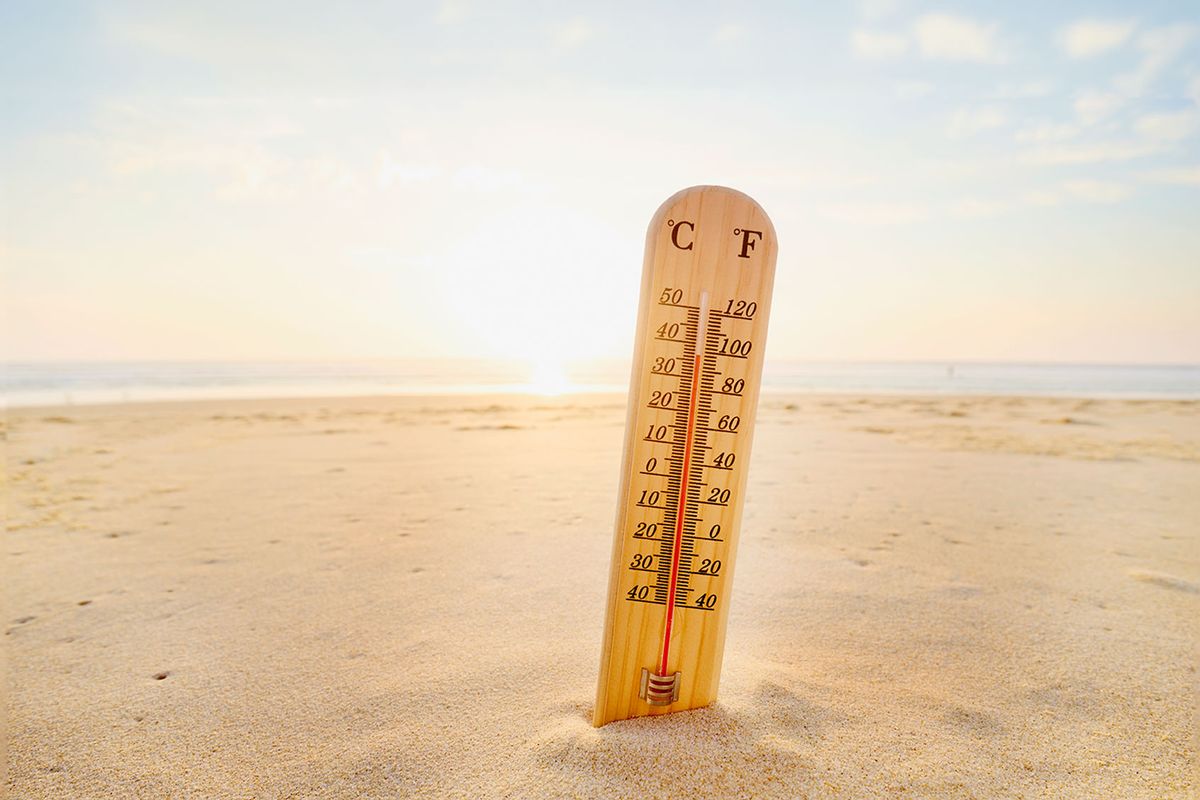
The world's oceans just broke an important climate change record
Temperature records in the ocean have been broken every single day of the past year, according to new research
As climate change worsens, experts anticipate worsened tropical storms, more frequent wildfires, rising sea levels and shortages of important products like food and microchips. Humanity needs every break that it can get in offsetting the greenhouse gas offsetting causing this overheating, which is why a recent report from the European Union's Copernicus Climate Service raises such concern: It reveals that global heating has fueled such massive overheating in the world's oceans that over the past year they broke temperature records EVERY SINGLE DAY.
Not only do the world's oceans absorb around a quarter of the carbon dioxide that humans produce, they similarly absorb roughly 90% of the planet's excess heat. As a result, they play a critical role in limiting the degree to which climate change causes extreme weather and other problems. Yet the new data suggests that the world's oceans are straining under this burden. The research reinforces a recent study in the journal Nature Climate Change, which identified human-caused climate change as the driver behind two important increases in the sea surface temperature's seasonal cycle amplitude, or how life on Earth responds to environmental variations. On both occasions, the science demonstrates that humans are overtaxing our oceans' ability to offset climate change.
"The fact that all this heat is going into the ocean, and in fact, it's warming in some respects even more rapidly than we thought it would, is a cause for great concern," Professor Mike Meredith from the British Antarctic Survey told the BBC.
"These are real signs of the environment moving into areas where we really don't want it to be and if it carries on in that direction the consequences will be severe."
These are not the only problems in terms of rising ocean heat content. Dr. Michael E. Mann, a professor of Earth and Environmental Science at the University of Pennsylvania, told Salon last year that rising ocean heat content is equal in significance to rising global surface temperatures because "the warming of the oceans is helping destabilize ice shelves and fuel more powerful hurricanes and tropical cyclones."

Have the courage to have children despite climate change and wars, Pope Francis says
(RNS) — The pontiff asked nations to help women juggle motherhood and work, create job security for young people and help couples buy homes.
VATICAN CITY (RNS) — Amid plummeting birthrates in many countries around the world, Pope Francis urged young people to “go against the current” and have children, during his speech at a conference on natality near the Vatican on Friday (May 10).
Francis entered the hall on Via della Conciliazione near the Vatican in his wheelchair while hundreds of young people, couples and children greeted him with a standing ovation at the meeting of the States General on Natality.
Friday marked the fourth year that the pope has attended the meeting, which gathers politicians, journalists, intellectuals and entrepreneurs to address the problems and propose possible solutions for declining birth rates.
“I know that for many of you, the future may see unsettling, and that between falling birth rates, wars, pandemics and climate change it’s not easy to keep hope alive,” the pope said, “but don’t give up, have faith, because tomorrow is not something inevitable: We build it together, and this together we find first and foremost with the Lord.”
Francis encouraged young people to not “follow a script written by others. Let’s row to turn the tide, even at the cost of going against the current.”
The pope lamented theories that insist the human population should be kept under a certain bar to avoid economic, environmental and health crises. “I was always amazed by how these views, which are outdated and superseded, refer to human beings as if they were problems. But human life is not a problem, it’s a gift,” the pope said.
“No, the problem with our world is not children being born. It’s selfishness, consumerism, individualism, which render people complacent, alone and unhappy,” he said.
Fertility rates in the U.S. have been declining steadily for decades, with a recent study by the U.S. Centers for Disease Control and Prevention’s National Center for Health Statistics reporting the lowest birthrate in over a century in 2023.
In the European Union the population is shrinking at an even higher rate, with Italy, Spain and Malta failing to reach the replacement rate. In his speech, the pope noted the average age in Italy is currently 47 and that the country is aging rapidly.
“The Old Continent is becoming more and more an aging, tired and resigned continent, so taken with exorcizing loneliness and distress that it no longer knows how to enjoy the true beauty of life,” Francis said.
Francis laid out his concerns for countries with low birth rates, which he said signify a lack of desire for the future. For the pontiff, this reflects an overarching culture that regards money as the highest goal. He lamented that investments in the arms trade and in contraceptives are among the most profitable today.
“The former destroy life, the latter impede life,” Francis said. “What future awaits us?”
As I said Pope Francis is very concerned about the Climate Change issue.
Actually, after having had a Global Temperature Deviation for April 2024 of 1.58°C which I knew, the 365-day Global Temperature Deviation is now 1.61°C, slightly higher than I thought. Not a good news.
Wish to remind that April 2024 was the eleventh month in a row record warmest month.
Last edited:
In Canada in May we have a vast early heat wave in Northern Canada with fires already and Temperatures rising at record levels.
Expect that this rising trend of Temperatures will be confirmed also at Global Level and that May 2024 will be twelveth month in a row record warmest month with a 365-day Global Temperature Deviation >1.61°C well above the threshold of 1.5°C set by the Agreement of Paris.
This post is WORRISOME. PLEASE don't look it up.
In Canada in May we have a vast early heat wave in Northern Canada with fires already and Temperatures rising at record levels.
Expect that this rising trend of Temperatures will be confirmed also at Global Level and that May 2024 will be twelveth month in a row record warmest month with a 365-day Global Temperature Deviation >1.61°C well above the threshold of 1.5°C set by the Agreement of Paris.
This post is WORRISOME. PLEASE don't look it up.
Also the one year--RECORD SEA SURFACE WARMING CONTINUES in May in spite of the fact that El Niño is weakening.
Let's follow CAREFULLY this behavior of the Global Temperature Deviation and Sea Surface Temperatures (SST) because if in August the Anomaly of the Temperatures will not stabilize we will be in UNCHARTED TERRITORY, as Dr. Gavin Schmidt Director of NASA GISS said.
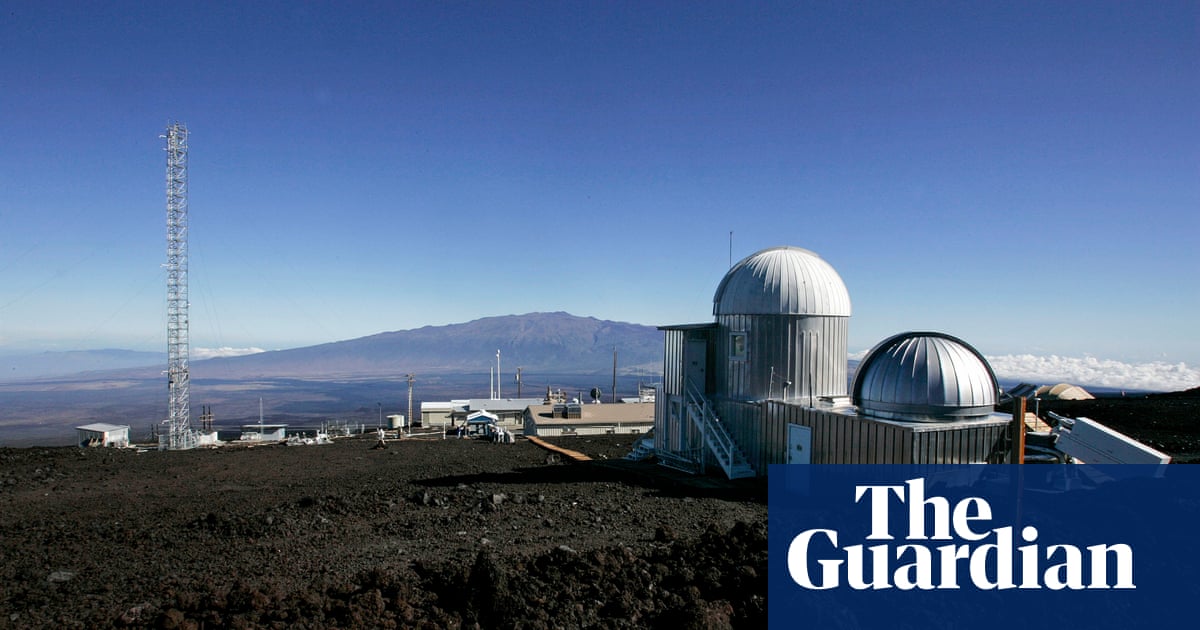
Record-breaking increase in CO2 levels in world’s atmosphere
Experts issue warning after finding global average concentration in March was 4.7ppm higher than same period last year
The largest ever recorded leap in the amount of carbon dioxide laden in the world’s atmosphere has just occurred, according to researchers who monitor the relentless accumulation of the primary gas that is heating the planet.
The global average concentration of carbon dioxide in March this year was 4.7 parts per million (or ppm) higher than it it was in March last year, which is a record-breaking increase in CO2 levels over a 12-month period.
The increase has been spurred, scientists say, by the periodic El Niño climate event, which has now waned, as well as the ongoing and increasing amounts of greenhouse gases expelled into the atmosphere due to the burning of fossil fuels and deforestation.
"It’s really significant to see the pace of the increase over the first four months of this year, which is also a record,” said Ralph Keeling, director of the CO2 Program at UC San Diego’s Scripps Institution of Oceanography. “We aren’t just breaking records in CO2 concentrations, but also the record in how fast it is rising.”
The global CO2 readings have been taken from a station perched upon the Mauna Loa volcano in Hawaii since the measurements began in 1958 under Keeling’s father, Charles. The concentrations of CO2 have increased each year since, as the heat-trapping gas continues to progressively accumulate due to rampant emissions from power plants, cars, trucks and other sources, with last year hitting a new global record in annual emissions.
In June, the National Oceanic and Atmospheric Administration announced that global concentration of CO2 had hit 421ppm, a 50% increase on pre-industrial times and the highest in millions of years. The latest reading from Mauna Loa shows the world at around 426ppm of CO2.
Before the point where humans starting expelling huge volumes of carbon dioxide into the atmosphere through the burning of fossil fuels, CO2 levels were around 280ppm for almost 6,000 years of human civilization.
The rapid rise in the heat-trapping gas threatens the world with disastrous climate breakdown in the form of severe heatwaves, floods, droughts and wildfires. Recent research has suggested that CO2 levels were last this high around 14m years ago, causing a climate that would appear alien to people alive today.
The previous record annual rise in CO2 took place in 2016, amid another El Niño event, which temporarily causes a spike in global temperatures. A more standard annual increase of around 2-3ppm will likely return following the end of this latest El Niño, but this is little cause for comfort, according to Keeling.
"The rate of rise will almost certainly come down, but it is still rising and in order to stabilize the climate, you need CO2 level to be falling,” he said. “Clearly, that isn’t happening. Human activity has caused CO2 to rocket upwards. It makes me sad more than anything. It’s sad what we are doing.”
mspohr
Well-Known Member
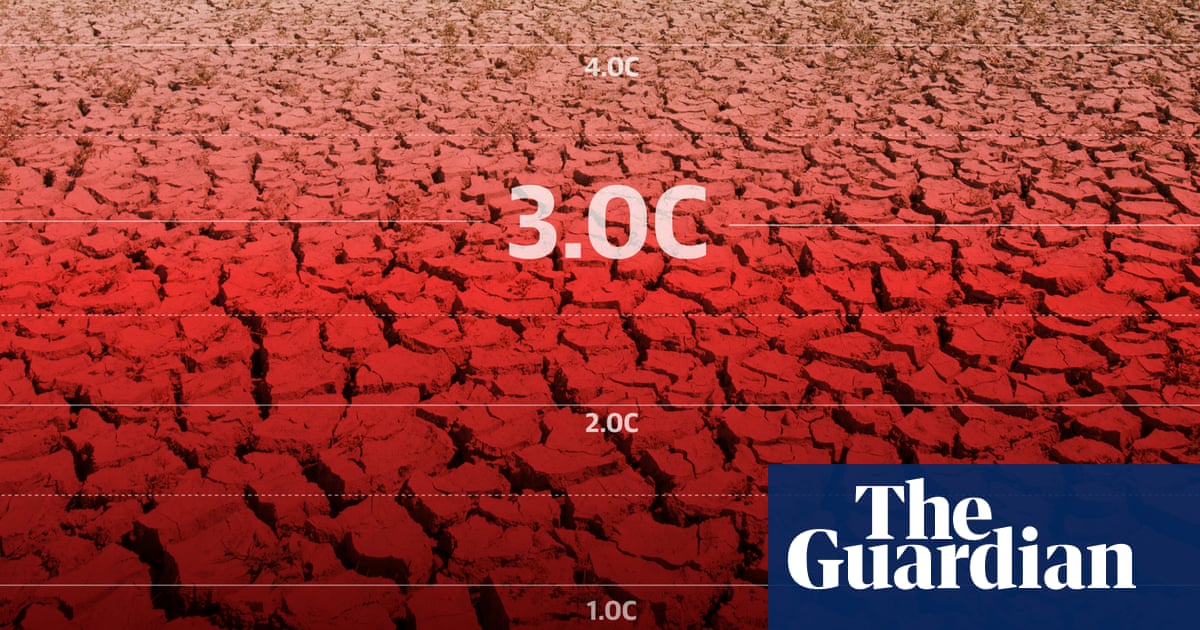
Brutal heatwaves and submerged cities: what a 3C world would look like
Climate scientists have told the Guardian they expect catastrophic levels of global heating. Here’s what that would mean for the planet
Global heating is likely to soar past internationally agreed limits, according to a Guardian survey of hundreds of leading climate experts, bringing catastrophic heatwaves, floods and storms. Only 6% of the respondents thought the 1.5C limit could be achieved, and this would require extraordinarily fast, radical action to halt and reverse the world’s rising emissions from fossil fuel burning. However, the experts were clear that giving up was not an option, and that 1.5C was not a cliff-edge leading to a significant change in climate damage. Instead, the climate crisis increases incrementally, meaning every tonne of CO2 avoided reduces people’s suffering.
In Canada in May we have a vast early heat wave in Northern Canada with fires already and Temperatures rising at record levels.
Expect that this rising trend of Temperatures will be confirmed also at Global Level and that May 2024 will be twelveth month in a row record warmest month with a 365-day Global Temperature Deviation >1.61°C well above the threshold of 1.5°C set by the Agreement of Paris.
This post is WORRISOME. PLEASE don't look it up.
I am not the only one to foresee a 365-day Global Temperature Deviation >1.61°C in the next few months.
According to Leon Simmons such a value will be 1.7°C in the months to come.
Similar threads
- Replies
- 19
- Views
- 1K
- Replies
- 48
- Views
- 4K
- Replies
- 64
- Views
- 4K
- Replies
- 54
- Views
- 34K
- Replies
- 4
- Views
- 12K


